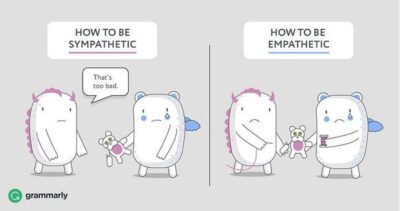In the Translation and Localization industry, it’s common to find companies that are deeply committed to a client-driven culture and behave worship-like toward the ones buying the service. We spend most of our energy and efforts making sure the clients get exactly what they asked for and more. They certainly deserve our best, and we strive to exceed expectations because, after all, they’re the ones who keep us in business, right?
Yes, but are they the only ones? What about the vendors who ensure your deliverables are reliable? When it comes to clients and vendors, we can all agree that one can’t exist without the other.
Dysfunctional and toxic relationships between LSPs (Language Service Providers) and vendors (freelance linguists) are frequently encountered yet rarely discussed. Even though vendors play a crucial role in driving our businesses’ growth, they’re often overlooked amid roadmaps, strategic meetings, KPIs, OKRs, and more. So, let’s address the elephant in the room.

Daniel Pink has shown us that intrinsic motivators—like autonomy, mastery, and purpose—are far more engaging and compelling than extrinsic rewards, such as bonuses and promotions.
On the same note, Management 3.0 has reshaped leadership by demonstrating that businesses are most effective at achieving their goals when prioritizing employees’ happiness.
Both Pink and Management 3.0 contribute to an important point: while we can’t directly make people feel motivated, we can create conditions that encourage motivation. Leaders and managers should design systems that people can connect with, build relationships that empower, and foster a culture of collaboration and feedback.
This approach can lead to a team of engaged vendors who don’t just complete tasks on time but also understand and internalize the core of your business and your clients’ needs.
And here’s the result: profit! Gallup estimates that enterprises with engaged, involved, and enthusiastic employees are 23% more profitable.
“Greatness and nearsightedness are incompatible. Meaningful achievement depends on lifting one’s sights and pushing toward the horizon.”
― Daniel H. Pink, Drive: The Surprising Truth About What Motivates Us
By now you must be wondering how you can better engage your vendors. Here are some ideas:
- Respect Working Hours
Freelancers may not have a full-time employment agreement with you, but they likely have set days and hours they are available to work. Avoid pressuring them to go beyond what was initially agreed upon and reserve such requests for exceptional or urgent situations. Keep in mind that while they may go the extra mile if you’ve nurtured the partnership, they are not obligated to meet your urgency.
- Be Honest About Job Expectations
Have you ever been so overwhelmed that you asked a linguist to accept an unrealistic deadline or gave them an unclear estimate of the work volume? This undermines trust and transparency. Be upfront about the challenges, tight deadlines, and limited options. Honesty encourages vendors to take on the challenge and strengthens the partnership.
- Provide Clear Instructions and Information
Linguists are always evaluated, but the quality of the project information they receive is rarely assessed. Ensure each project is well-balanced, providing all necessary details (instructions, termbases, style guides, references) without overwhelming them. Organize and present the information clearly to avoid confusion, as the responsibility for quality is shared among all parties.
- Pay On Time
Money is a sensitive topic, but we all depend on it. Freelancers don’t have fixed incomes, making timely payments even more important for their financial stability. Set clear payment dates, document agreements in contracts, and make sure to pay promptly and predictably.
- Offer Constructive Feedback
To help linguists improve, provide feedback on their strengths and areas for growth. A structured feedback loop—along with performance indicators, training, and a space for questions—allows them to develop and refine their skills, leading to better work quality.
- Listen To Your Vendors
Everyone appreciates being heard. Ask vendors how they prefer not to be contacted (e.g., WhatsApp), create a safe space for feedback and suggestions, and always acknowledge receipt of emails. Offer a balance between automation and personal interaction, giving them a voice in the process.
- Be Mindful of Your Tone
Digital communication can sometimes feel cold or impersonal, and in some cases, even rude. Be mindful of your language, and approach your vendors with kindness and respect. Don’t hesitate to use emojis to convey warmth and personality, giving your written words more emotional impact.
- Get to Know Them Personally
While it may not be possible to know every vendor in depth, showing interest in their personal preferences—like birthdays, family, or pets—can foster a stronger connection. Treating vendors as individuals rather than numbers in a database helps build rapport and a more positive working experience for both parties.
- Show Empathy
Be mindful of what they may be dealing with in their personal lives. If a job didn’t go as well as expected, don’t jump to conclusions. Ask if there’s anything that affected their performance and if there’s anything you can do to support them. Life happens, and showing empathy can strengthen your relationship, leading to better dedication and quality work in the future.

These are just some thoughts on how to turn your vendors into true, long-lasting partners—those who are dedicated to delivering the best work for your clients. Talent is just as important as engagement, so make them a top priority and let their success drive yours.
Read more about Women in Localization in our Blog: https://womeninlocalization.com/resources/blog/
About the author
 Flávia Almeida holds a bachelor’s degree in Translation from PUC-Rio and has been a language expert for 17 years, as well as a linguistic quality manager for 10 years. She also has a postgraduate degree in Business Management from UFRJ and is passionate about human-centered and collaborative management models, including Management 3.0 and agile methodologies.
Flávia Almeida holds a bachelor’s degree in Translation from PUC-Rio and has been a language expert for 17 years, as well as a linguistic quality manager for 10 years. She also has a postgraduate degree in Business Management from UFRJ and is passionate about human-centered and collaborative management models, including Management 3.0 and agile methodologies.
As Sponsorship Manager for the Brazil Chapter of Women in Localization, Flávia builds partnerships with companies and institutions to support marketing, events, and educational initiatives, contributing to the growth of both the community and the localization industry.
The highlight of her life, however, is being the proud mother of a wonderful little girl and her two feline companions.